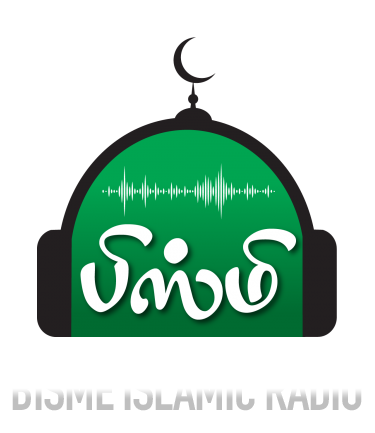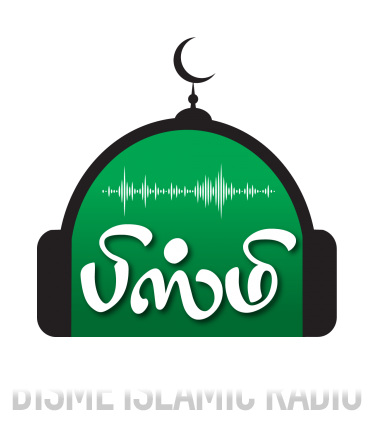What is the definition of Halal?
Source:MuslimSG
Halal food: What does it mean?

When we hear the word “halal”, we naturally think about food. In reality, halal encompasses more than just what we eat and drink.
What is halal?
Firstly, we need to understand the definition of halal. The word is derived from the Arabic language and refers to something that is permissible and acceptable.
Halal is not only restricted to what we eat, but more broadly refers to every aspect of our lives: how to dress, interact with others, or conduct business affairs, amongst others. In that sense, it encompasses a holistic lifestyle and helps us maintain our spirituality in everyday activities.

For example, halal interactions include no backbiting, no gossiping and no sexual innuendos. Halal businesses include not engaging in vice or illegal activities. Thus, leading a halal lifestyle not only makes us observe the teachings of Islam but also contributes to our overall well-being and that of society.
What is the meaning of halal food?
In general, all food is halal except those that are clearly prohibited to be consumed in the Quran and Hadith.
Allah says in the Quran,
يَـٰٓأَيُّهَا ٱلَّذِينَ ءَامَنُوا۟ كُلُوا۟ مِن طَيِّبَـٰتِ مَا رَزَقْنَـٰكُمْ وَٱشْكُرُوا۟ لِلَّهِ إِن كُنتُمْ إِيَّاهُ تَعْبُدُونَ
“O believers! Eat from the good things We have provided for you.”
(Surah Al-Baqarah, 2:172)
In addition to halal, it is also important that the food we consume is also toyyib or good.

One misconception is that halal means “no pork no lard”. However, one must also ascertain that non-halal ingredients such as dressings containing alcohol have not been added to the food. Once we have confirmed the above and we do not have doubt (was-was), we may choose to consume the food.
What is haram food in Islam?
Haram means “prohibited”. Food that is prohibited or haram for Muslims to consume is mentioned in Quran and Hadith.
To help you remember better what is prohibited by our religion for us consume, we have come up with an acronym – ABCDIS:
A – Amphibians
B – Blood, Birds of Prey
C – Carnivorous animals
D – Dead meat / Carrion
I – Intoxicants and Immolated foods
S – Swine
Thus, a dish or food product prepared using ingredients of the origin above is haram for us to consume.
What is Syubhah food?
Syubhah is also an Arabic word that means “doubtful”. When the halal status of a food item is unclear, it will fall under the “doubtful” category. In Islam, Muslims are encouraged to choose food that is clearly halal and to leave those that are syubhah and haram. Examples of doubtful food would be fresh whole chicken without a halal logo or tag, beef patties without a halal logo or packaged food without an ingredient listing.
As a consumer, how do I determine if food is halal?
One of the most convenient ways to determine the halal status of food is to check for a halal logo or halal certificate. You can also check Muis’s list of halal-certified eating establishments here.
There are also other ways to determine the halal status of foods.

Let’s go through the three categorizations of halal food in the table below to help us decide on the halal status of food.
| Low Halal Risk | Medium Halal Risk | High Halal Risk | |
| Definition | Food or ingredients that are from plants or have undergone minimal processing. | Food or ingredients that have undergone quite extensive processing or manufacturing steps. | Food or ingredients that are from animals and/or animal-based and/or flavourings. |
| Examples | Spices, rice, lentils, legumes, salt, ice, raw sugar, fresh seafood, raw eggs, etc. | Pasta, noodles, soybean products, food additives excluding the E400 series, cheeses, confectionary products – chocs, sweets, processed milk, etc. | Beef, mutton, chicken, duck, gelatine, collagen, tallow, vanilla extracts, etc. |
| Halal Logo / Certificate required? | No | No, but we will need to read the ingredients to determine whether there is any ABCDIS and/or ingredients from animals. | Yes |
| Tips | Considered as halal, even without a halal logo and/or halal certificate. | 1: Look for claims such as “Suitable for Vegetarians” and then confirm by looking at the list of ingredients there is no alcohol. If none, you may decide to consume it. 2: Look for a statement – Additives used are derived from plants and/or through synthetic means. This may also be an indication that the product may be suitable for Muslims to consume. 3: A better product for you is one where you can understand the ingredients used. If there are so many food additives used or chemical names you don’t know and can’t pronounce, best to avoid it. | When a food product is of animal origin and/or contains flavourings, look out for a halal logo to be assured of its halal status. |
Read: 6 Misconceptions about Halal vs Halal Certification
Other than ingredients, what else matters in the preparation of halal food?
Other than ingredients, it is also important that the premises or location, utensils and crockeries are dedicated to the preparation and serving of halal food. And of course, it is also important (as well as a given!) that the premises or location is clean.
Read: Common Questions About Halal and Halal Certification in Singapore
How do I determine whether a food additive is halal?
Food additives such as stabilizers, emulsifiers, colourings, raising agents, etc, may be of plant, animal or synthetic origin. If looking at the numbers and/or names confuses you, you may instead look for statements such as “Additives are of plant and/or synthetic origin” or “Suitable for Vegetarians / Vegans”. Those claims are indicators that the product may be suitable for Muslims to consume (but of course, don’t forget to check whether there other ABCDIS-ingredients 😉).
We hope the above has given you some basic knowledge on halal food and practical tips to determine the halal status of a food item.
We asked Ustaz Khairul Anwar, Ustazah Shameem Sultanah and Ustaz Khidir your IG questions on halal food. Find your answers in this latest episode of Asatizah Answer Your IG Questions hosted by Ustaz Ridhwan:





